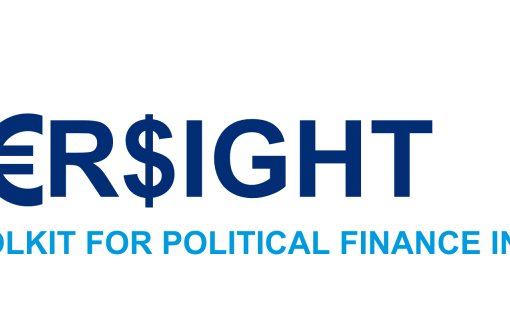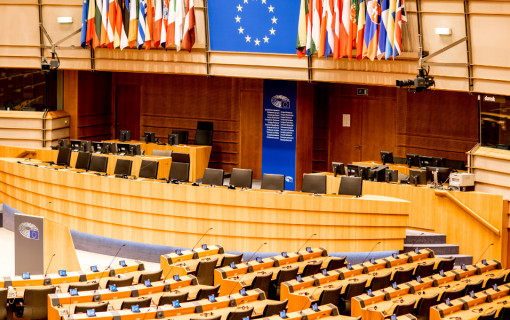Kazakhstan's April Election: Another Means to Make Nazarbayev President for Life
In January, Kazakhstan's Constitutional Court ruled against a bid backed by the country's parliament to bypass next year's presidential election and hold a referendum to extend President Nursultan Nazarbayev's term until 2020. Shortly afterward, Nazarbayev asked the parliament — which is dominated by his Nur-Otan party — to allow him to change the date of the next presidential election via a constitutional amendment. The election will now be held April 3, more than 18 months before the scheduled December 2012 date.
Anthony Clive Bowyer, IFES’ Program Manager for the Caucasus and Central Asia, discusses the recent court ruling and Kazakhstan’s prospects for free and competitive elections in April.
IFES: Last month, we were assuming the referendum to scrap the 2012 elections would be passed. Instead, the Constitutional Court has called the referendum illegal. What happened?
Anthony C. Bowyer: A “people's initiative” — which was actually started by Nur-Otan party activists —demanding the president stay in office until 2020 was rejected by the Constitutional Court as a violation of the constitution. President Nazarbayev agreed, respecting the voters for their confidence in him while deferring to adherence to democratic principles. As a consolation prize, a special election will be held on April 3 that will allow voters to decide the presidency through what at least on paper is being touted as a competitive election — a more democratic means than a referendum.
IFES: What does having elections in such a short time frame mean for the opposition?
ACB: It means there is very little time to organize a campaign. For a weak opposition this is even more the case. Some opposition parties will try to register candidates but see them disqualified for some reason. Others will boycott entirely. There will be opposition candidates, but they may not be serious opposition candidates and could come from the President’s party.
This timeline comes from a Kazakh government source:
On February 4, the Central Election Commission announced the candidates can be put forward between February 5 and 20. Between February 20 and March 2, the CEC will review the documents submitted by candidates and decide on which ones fulfill all formal requirements to be included on the ballot. Between March 3 and April 1, the candidates will hold their official campaigns, and, according to the CEC ruling, each candidate can establish a campaign fund worth not more than 431,973,000 tenge (about $2.9 million).
The fact remains that no legitimate opposition — even if they can gather the requisite number of signatures in time and pass the language test — can possibly muster a national campaign with the resources to drive it in the short time available.
IFES: Why hold elections now rather than next year?
ACB: This possibly could be due to specific health concerns of the president and the need to ensure stability for an eventual transfer of power. Also, it seems the president does not want the opposition to have a chance to develop momentum before the 2012 scheduled presidential election. The regime is doing this to leave nothing to chance — to strike while the iron is hot and take advantage of Nazarbayev's popularity to keep him around for as long as possible.
IFES: How do the people of Kazakhstan feel about having Nazarbayev be their president for life?
ACB: President Nazarbayev is popular as long as the economy continues to churn along. Still, many are living in poverty, particularly in ethnic Kazakh regions in the south and west where development has been less pronounced.
There is a high degree of tolerance of authoritarian rule among the people and self-imposed restraint about challenging the status quo. The president and his supporters have skillfully been able to divide and weaken the political opposition. There is not much trust in opposition candidates doing any better than Nazarbayev, and there are fears that opposition leadership could cause instability. Those wanting change at the top are still a minority.
As long as the masses are more or less appeased economically, the country will remain stable. But corruption and graft are high, and so is the regime's intolerance of dissent. If--or when--there is a breaking point (likely to a combination of internal and external factors such as the price of oil plummeting, high profile cases of corruption leading to protests, or a coalescence of the opposition), this stability may be overturned.
IFES: Are there any political alternatives to Nazarbayev waiting in the wings?
ACB: Opposition alternatives? There are few obvious candidates who are ready to step up at the present time, though several recently formed or re-formed political parties, nascent though they are, could produce young and energetic leaders. As seen by recent world events, youth are a driving force for political change, and with youth forming a growing majority of the population, this is the most likely constituency from whence a future, popularly elected leader could hail. Still, to a large degree, many of the next generation of leaders are beholden to Nazarbayev, given their exposure to international educational and professional opportunities facilitated by the government.
IFES: You mentioned the Kazakh language test that is required of all candidates. Why has the test been a stumbling block for some potential candidates?
ACB: The test has been made more rigorous to weed out many otherwise qualified candidates. One was recently dismissed for making too many “stylistic” errors, while a previous candidate passed. The president passed his test on February 10 with flying colors.
I can't say that different standards are applied for different candidates, but one fact is that many otherwise qualified candidates had their schooling in Russian during the Soviet days and may not know Kazakh as rigorously as the standards require. I think the test assesses literary knowledge of Kazakh as well as working knowledge.
IFES: What happens after the presidential election?
ACB: Parliamentary elections are scheduled for August 2012. Don't be surprised if these are moved up, too. I can see parliamentary elections being called early in an effort to “diversify” the composition of parliament away from 100 percent representation by Nur-Otan to demonstrate another case of the country’s democratic development.
IFES: What should be the United States’ policy toward Kazakhstan?
ACB: We have to strategically engage Kazakhstan on all levels, especially on democracy. Disengagement accomplishes little, and we can and should express our dissatisfaction at the conditions under which this election is being arranged.
U.S. priorities in Kazakhstan continue to be 1) economic and 2) security-based. This won’t change in the short term, and it limits our influence in matters of democracy and governance, especially since the U.S. was one of many countries that supported Kazakhstan’s ascension to chair-in-office of the Organization for Security and Cooperation in Europe last year. Yet we have to continue pressing the issues of human rights, media freedom, and open and inclusive elections. Staying true to this message will benefit the U.S. in the long term, and it needs to be supported by concrete steps and engagement with the election commission, political parties and civil society.









